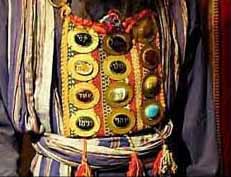 |
BE |
AWARE |
 |
| LOOK FOR THE NEED Nehemiah 1:1-3 The words of Nehemiah the son of Hachaliah. And it came to pass in the month Chisleu, in the twentieth year, as I was in Shushan the palace. That Hanani, one of my brethren, came, and he and certain men of Judah; and I asked them concerning the Jews that had escaped, which were left of the captivity, and concerning Jerusalem. And they said unto me, The remnant that are left of the captivity here I the province are in great affliction and reproach: the wall of Jerusalem also is broken down, and the gates thereof are burned with fire. |
REVIEW Nehemiah’s station at the court of Persia. He was in Shushan the palace, or royal city, of the king of Persia, where the court was ordinarily kept (v.1) and he was the king’s cup-bearer. By this place at court he would be the better qualified for the service of his country in that post for which God had designed him, as Moses was the fitter to govern for being bred up in Pharaoh’s court, and David in Saul’s. He would also have the fairer opportunity of serving his country by his interest in the king and those about him. God has his remnant in all places. God can make the courts of princes sometimes nurseries and sometimes sanctuaries to the friends and patrons of the church’s cause. It happened that a friend and relation of Nehemiah’s came to the court, with some other company. (v. 3) Hanani, the person he enquired of, has this character given of him (ch.7:2), that he feared God above many, and therefore would not only speak truly, but, when he spoke of the desolations of Jerusalem, would speak tenderly. Now the account he gives is, 1. That the holy seed was miserably trampled on and abused, in great affliction and reproach, insulted upon all occasions by their neighbours, and filled with the scorning of those that were at ease. 2. That the holy city was exposed and in ruins. The wall of Jerusalem was still broken down, and the gates were, as the Chaldeans left them, in ruins. This made the condition of the inhabitants both very despicable under the abiding marks of poverty and slavery, and very dangerous, for their enemies might when they pleased make an easy prey of them. the temple was built, the government settled, and a work of reformation brought to some head, but here was one good work yet undone; this was still wanting. |
| Look for the Reason Nehemiah 1:4-7 And it came to pass, when I heard these words, that I sat down and wept, and mourned certain days, and fasted, and prayed before the God of heaven. And said, I beseech thee, O Lord God of heaven, the great and terrible God, that keepeth covenant and mercy for them that love him and observe his commandments: Let thine ear now be attentive, and thine eyes open, that thou mayest hear the prayer of thy servant, which I pray before them now, day and night, for the children of Israel thy servants, and confess the sins of the children of Israel, which we have sinned against thee: both I and my father’s house have sinned. We have dealt very corruptly against thee, and have not kept the commandments, nor the statutes, nor the judgments, which thou commandedst thy servant Moses.. | REVIEW Nehemiah’s humble and reverent address to God. It teaches us to draw near to God, 1. With a holy awe of his majesty and glory, remembering that he is the God of heaven, infinitely above us, infinitely excelling all the principalities and powers both o the upper and the lower world, angels and kings. 2. With a holy confidence in his grace and truth, for he keepeth covenant and mercy for those that love him, not only the mercy that is promised, but even more than he promised. His penitent confession of sin, the pleas he urges for mercy for his people Israel. He pleads what God of old said to them. Our best pleas therefore in prayer are those that are taken from the promise of God, the word on which he has caused us to hope, Psalm 119:49. |
| Look for the Possibility Nehemiah 1:8-11 Remember, I beseech thee, the word that thou commandest thy servant Moses, saying, If ye transgress, I will scatter you abroad among the nations: But if ye turn unto me, and keep my commandments, and do them; though there were of you cast out unto the uttermost part of the heaven, yet will I gather them from thence, and will bring them unto the place that I have chosen to set my name there. O Lord, I beseech thee, let now thine ear be attentive to the prayer of thy servant, and to the prayer of thy servants, who desire to fear thy name: and prosper, I pray thee, thy servant this day, and grant him mercy in the sight of this man. For I was the king’s cupbearer. |
REVIEW Nehemiah pleads what God had of old said to them. He pleads the relation where of old they stood to God. As evidence of their being God’s servants he gives them character (v. 11) “They desire to fear thy name; they are not only called by thy name, but really have a reverence for thy name; they now worship thee, and thee only, according to thy will, and have an awe of all the discoveries thou art pleased to make of thyself; this they have a desire to do.” He pleads the great things God had formerly done for them. Lastly, He concludes with a particular petition, that God would prosper him in his undertaking, and give him favour with the king. Mercy in the sight of this man is what he prays for, meaning not the king’s mercy, but mercy from God in his address to the king. Favour with men is then comfortable when we can see it springing from the mercy of God. In your life, how has God positioned you for success in building His kingdom? If we open our eyes to the needs of others and the needs of God’s church, we will see many places where God wants to use us. A true burden will move us to action in meeting needs. ~Ask questions that may reveal the needs of those around you. ~Allow your concern to develop into a burden. ~Take the burdens of your heart to the Lord in prayer. ~Look for God’s hand around you; allow Him to position you to meet the needs of others and of His church. God is looking for people like Nehemiah who will see a problem and step up to serve. Will you be one of those people? |